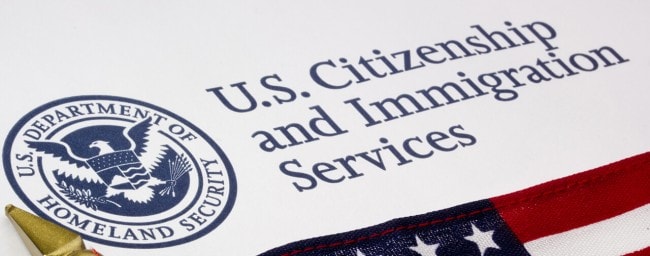
When you apply for a visa in the United States, your advanced degree and professional experience allow you to petition for an employment-based, second preference visa, commonly referred to as an EB-2. Some of the challenges of successfully petitioning for an EB-2 visa include the requirement of a pre-existing job offer in the U.S. and the requirement that your prospective employer have a Department of Labor Certification. You have the option, however, to apply for a National Interest Waiver (NIW) in order to make the case that the value of your expertise to the U.S. workforce outweighs the need for a job offer and Department of Labor Certification.
Historically, the challenge of successfully petitioning for an NIW has come from the vague and confusing definition of “national interest” and the subjective interpretation of this concept. In 2016, the Matter of Dhanasar was published by the Administrative Appeals Office (AAO) which provides some clarification and simplification for a you to present a strong case for NIW approval.
What is the Matter of Dhanasar?
Prior to the publication of the Matter of Dhanasar, NIW’s were approved based on three criteria, or three “prongs”, established by a previous decision, New York State Department of Transportation (NYSDOT). These three prongs stated that a NIW could be approved if:
These requirements had long been frustrating to individuals seeking approval of a NIW, as language defining what area’s had substantial “intrinsic merit” and were applicable on a “national scope” was left intentionally vague. Finally, the wording of the third prong placed the burden on the petitioner to present evidence that the national interest would be “adversely affected” by the requirement of a job offer and/or a DOL certification.
With the 2016 publishing of Dhanasar decision, the three prongs were reworked to provide a clearer picture of what was required for the approval of a NIW. The new criteria states that a NIW is applicable if you are able to present evidence that:
While, on first glance, these new criteria may appear similar, each of the new criteria has subtle clarifications and differences which may improve your chances that your NIW will be approved. Let’s review some of the clarifications provided within The Matter of Dhanasar.
“The proposed endeavor… has substantial merit and national importance.”
The first prong of the matter of Dhanasar provides clarification specific to the actual job or endeavor that you propose. In the Dhanasar decision , the AAO specifies that it considers the NIW approval based on whether or not your endeavor will have a wider-ranging positive impact on a field of study or industry. This is not just determined by the direct economic impact of your work but on whether it could have an overall impact that is meaningful to a given field. For example, if you were a medical researcher were seeking petition, while you may not directly receive significant financial gains from your work, it is still possible that the work that you do will be beneficial to the field overall.
Another aspect address in the first prong is the acceptability of the geographic impact of your work. You no longer need to prove that your endeavor has immediate impact on the national interest in a geographic sense. If the service you provide is meaningful to a specific geographic area, according to The Matter of Dhanasar, that may still be interpreted as having “national importance.”
“The petitioner is well positioned to advance the proposed endeavor”
This prong is applicable to your education, skills, and work experience. The Dhanasar decision clarifies that you do not have to provide evidence that their endeavor will ultimately be successful, but that you have sufficient education, skills, etc. to forward the endeavor. The example of a medical researcher is a good illustration of the impact of this new criteria. While the researcher may not be providing marketable materials, their expertise in the field will still provide valuable data that will contribute positively to the overall understanding and knowledge of the field.
“On balance, it would be beneficial to waive the requirements of a job offer and DOL certification”
This third prong is possibly the most impactful of the clarifications made by the Dhanasar decision. Previous interpretation of the NIW criteria required you to provide evidence that either tangible harm would be done to the national interest if the NIW were not approved, or your contribution to the work force could be considered greater than the contribution of the existing U.S. workforce. These points are exceedingly difficult to prove and resulted in confusing and inconsistent decisions from the AAO.
The new criteria allows for a more flexible interpretation. Your contribution to the national interest is evaluated on its own merits, rather than the comparative merits to the U.S. workforce. Additionally, the you don’t have to prove that tangible harm will be done if your NIW is denied.
Conclusion
Overall, The Matter of Dhanasar, has provided a more clearly outlined interpretation to consider when applying for the National Interest Waiver. It also allows for a more flexible interpretation of the criteria of the NIW that generally favors petitioners.
It is still very important that the you present your education, work experience, and expertise in the most professional, favorable light possible. Utilizing an experienced credential evaluation service, such as USCES will allow you to present your degree equivalent to that of the U.S. education system. USCES can also direct you to resources such as English translations of foreign documents and expert opinion letters to provide sufficient evidence for the approval of your National Interest Waiver.